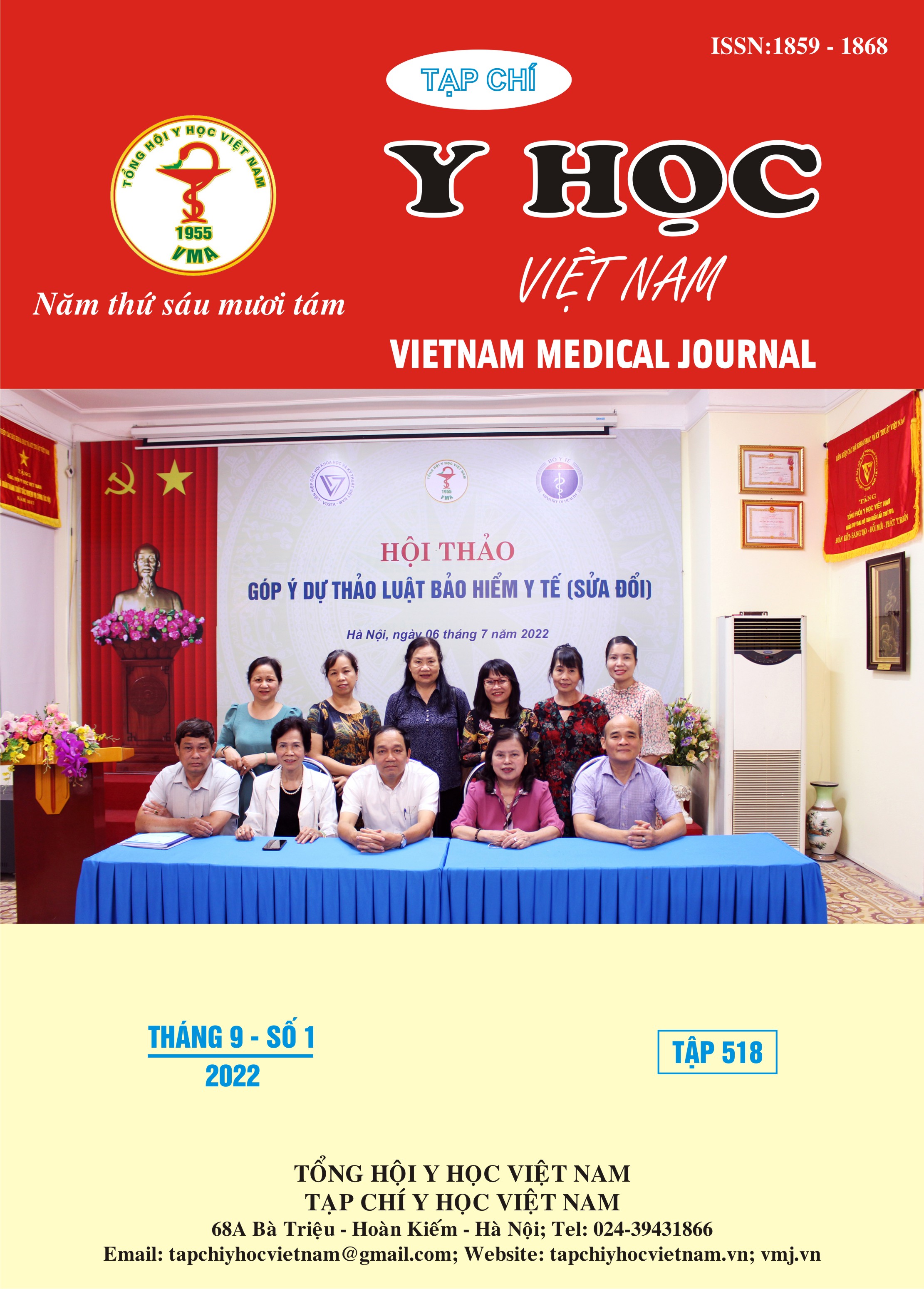KNOWLEDGE AND VOLUNTARY ATTITUDE OF MEDICAL STUDENTS OF CAN THO UNIVERSITY OF MEDICINE AND PHARMACY IN THE PREVENTION OF COVID-19 PANDEMIC
Main Article Content
Abstract
Background: Safe and effective vaccination is the only way to reduce mortality from the COVID-19 pandemic. Misunderstandings about vaccines can lead to subjective psychology. Ojectives: To survey the knowledge about vaccination against COVID-19 vaccine of officials and employees of Can Tho University of Medicine and Pharmacy (CTUMP). Materials and methods: A cross-sectional descriptive study in 422 officials and employees working at CTU from June 2021 to September 2021. Results: There were 152/422 participants correctly answered 5/6 questions about knowledge about vaccination against COVID-19 vaccine. The prevalence of officials and employees of CTU with common correct knowledge was 36%, and incorrect knowledge was 64%. Three knowledge content with high correct prevalence was “Knowing the information about the COVID-19 vaccine” reaching 100%; “It is possible to get COVID-19 even after being vaccinated against COVID-19” reaching 96.9%; “It is possible to vaccinate against COVID-19 even with a history of infection” reaching 93.6%. Among the 7 characteristics of the subjects, only the relevant working seniority was statistically significant with the correct knowledge prevalence, p=0.032. Information about the COVID-19 vaccine was mainly sourced from media channels such as television, newspapers and radio (87.7%). Conclusion: The percentage of officials and employees of CTU with correct knowledge about COVID-19 vaccine is not high, 36%. Regarding the relationship with the object characteristics, only the working seniority was determined to have a statistically significant relationship with the correct knowledge rate.
Article Details
Keywords
COVID-19, CTUMP, officials and employees
References
2. Adebowale, O.O., Adenubi, O.T., Adesokan, H.K., et al. (2021), SARS-CoV-2 (COVID-19 pandemic) in Nigeria: Multi-institutional survey of knowledge, practices and perception amongst undergraduate veterinary medical students. PLoS One, 16(3): e0248189.
3. A Marshoudi S, Balushi H, Wahaibi A, et al. Knowledge, Attitudes, and Practices (KAP) toward the COVID-19 Vaccine in Oman: A Pre-Campaign Cross-Sectional Study. National Library of Medicine, Vaccines (Basel), 9(6):602.
4. Duong, M. C., Duong, B. T., Nguyen, H. T., Quynh, T. N. T., & Nguyen, D. P. (2022). Knowledge about COVID-19 vaccine and vaccination in Vietnam: A population survey. Journal of the American Pharmacists Association, S1544-3191(22)00014-0.
5. Nasir, M., Zaman, M. A., Majumder, T. K., Ahmed, F., Nazneen, R., Omar, E., ... & Begum, H. (2021). Perception, preventive practice, and attitude towards vaccine against COVID-19 among health care professionals in Bangladesh. Infection and Drug Resistance, 14, 3531.
6. Samanta, S., Banerjee, J., Kar, S. S., Ali, K. M., Giri, B., Pal, A., & Dash, S. K. (2022). Awareness, knowledge and acceptance of COVID-19 vaccine among the people of West Bengal, India: a web-based survey. Vacunas.
7. Tran B.X, Nguyen H.T., Le H.T., et al. (2020), Impact of COVID-19 on Economic Well-Being and Quality of Life of the Vietnamese During the National Social Distancing. Front Psychol; 11:565153.


